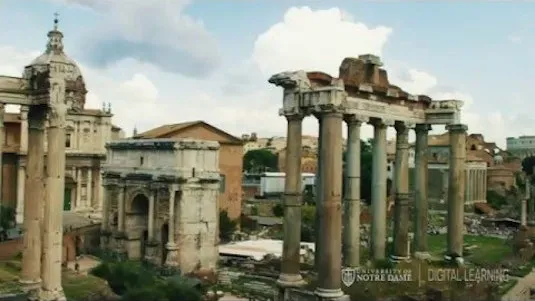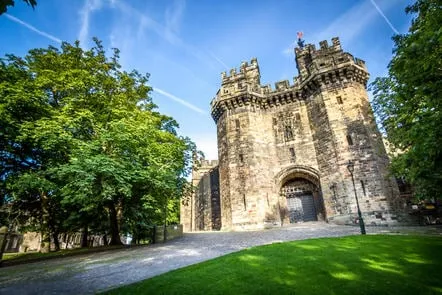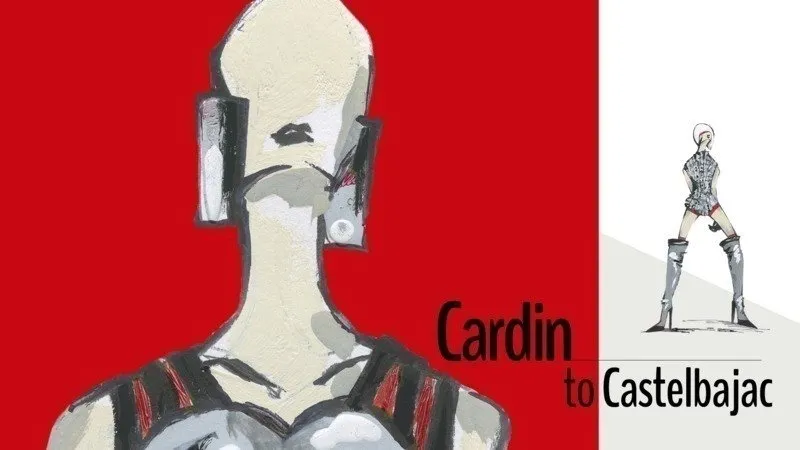
The Meaning of Rome: The Renaissance and Baroque City 
This course explores the meaning of Rome, from the Renaissance to the Baroque period. It examines the city's plan, buildings, streets, public spaces, and skyline, and considers how they communicate meaning. It also looks at how these elements come together to form a cohesive whole. ▼
ADVERTISEMENT
Course Feature
![]() Cost:
Cost:
Free
![]() Provider:
Provider:
Edx
![]() Certificate:
Certificate:
No Information
![]() Language:
Language:
English
![]() Start Date:
Start Date:
Self paced
Course Overview
❗The content presented here is sourced directly from Edx platform. For comprehensive course details, including enrollment information, simply click on the 'Go to class' link on our website.
Updated in [March 06th, 2023]
This course, The Meaning of Rome: The Renaissance and Baroque City, provides an exploration of the city of Rome from the fifteenth to the eighteenth centuries. Students will learn how to “read” the city in terms of its plan, buildings, and skyline, and how these elements project the city’s image to its citizens and the world. Through the course, students will uncover the narratives that were invested in Rome by Popes, architects, scholars, and sculptors, and will gain an understanding of how the city became a destination for pilgrims and Grand Tourists. The course is organized around three themes—the city and memory, the city as reliquary, and the city as theater—and will equip students with the skills necessary to consider how our own cities and communities are, or could be, meaningful. Upon successful completion of the course, students will have the opportunity to compile a Digication ePortfolio and earn a digital badge.
[Applications]
Those who complete The Meaning of Rome: The Renaissance and Baroque City course will be able to apply their knowledge to their own cities and communities. They will be able to use the skills they have acquired to consider how their cities and communities are, or could be, meaningful. They will also be able to create a Digication ePortfolio and earn a digital badge.
[Career Paths]
Recommended Career Paths:
1. Urban Planner: Urban planners are responsible for designing and developing plans for the physical layout of cities, towns, and communities. They analyze land use, zoning regulations, population growth, and economic trends to create plans that promote the efficient use of land and resources. Urban planners must stay up to date on the latest trends in urban development and be able to think creatively to develop innovative solutions to urban problems.
2. Architect: Architects design and plan the construction of buildings, bridges, and other structures. They must be able to understand the needs of their clients and create designs that meet those needs while also adhering to building codes and regulations. Architects must also be able to work with a variety of materials and technologies to create structures that are both aesthetically pleasing and structurally sound.
3. Historic Preservationist: Historic preservationists are responsible for preserving and protecting historic sites and buildings. They must be knowledgeable about the history of the sites they are working on and be able to identify and document any changes that have been made to the site. Historic preservationists must also be able to work with a variety of stakeholders to ensure that the site is preserved in a way that is respectful of its history and culture.
4. Museum Curator: Museum curators are responsible for managing and organizing the collections of museums. They must be knowledgeable about the history and culture of the items in the collection and be able to identify and document any changes that have been made to the items. Museum curators must also be able to work with a variety of stakeholders to ensure that the items in the collection are properly cared for and displayed.
[Education Paths]
Recommended Degree Paths:
1. Bachelor of Arts in Architecture: This degree program provides students with a comprehensive understanding of the history, theory, and practice of architecture. Students will learn about the design process, building materials, and construction techniques, as well as the principles of sustainability and urban planning. They will also gain an understanding of the cultural, political, and economic forces that shape the built environment. This degree program is ideal for those interested in pursuing a career in architecture, urban planning, or related fields.
2. Master of Science in Urban Planning: This degree program provides students with the skills and knowledge necessary to plan and design cities and communities. Students will learn about the principles of urban design, land use planning, and public policy. They will also gain an understanding of the social, economic, and environmental factors that influence urban development. This degree program is ideal for those interested in pursuing a career in urban planning, public policy, or related fields.
3. Doctor of Philosophy in Architecture: This degree program provides students with an advanced understanding of the history, theory, and practice of architecture. Students will learn about the design process, building materials, and construction techniques, as well as the principles of sustainability and urban planning. They will also gain an understanding of the cultural, political, and economic forces that shape the built environment. This degree program is ideal for those interested in pursuing a career in architecture, urban planning, or related fields.
4. Master of Arts in Historic Preservation: This degree program provides students with the skills and knowledge necessary to preserve and protect historic buildings and sites. Students will learn about the principles of historic preservation, conservation, and adaptive reuse. They will also gain an understanding of the social, economic, and environmental factors that influence the preservation of historic sites. This degree program is ideal for those interested in pursuing a career in historic preservation, conservation, or related fields.
Course Provider

Provider Edx's Stats at AZClass
Discussion and Reviews
0.0 (Based on 0 reviews)
Explore Similar Online Courses

Welding

Lancaster Castle and Northern English History

Python for Informatics: Exploring Information

Social Network Analysis

Introduction to Systematic Review and Meta-Analysis

The Analytics Edge

DCO042 - Python For Informatics

Causal Diagrams: Draw Your Assumptions Before Your Conclusions

Whole genome sequencing of bacterial genomes - tools and applications

Make Your Own Clothing: Introduction to Garment Construction

Gaultier to Louboutin: Style & Strategy in French Fashion

Cardin to Castelbajac: Style in French Fashion
 Related Categories
Related Categories
 Popular Providers
Popular Providers
Quiz
 Submitted Sucessfully
Submitted Sucessfully
1. What are the three themes of the course?
2. What is the main purpose of the course?
3. What is the reward for completing the course?
4. What is the main theme of the course?
Correct Answer: The Meaning of Rome: The Renaissance and Baroque City


Start your review of The Meaning of Rome: The Renaissance and Baroque City